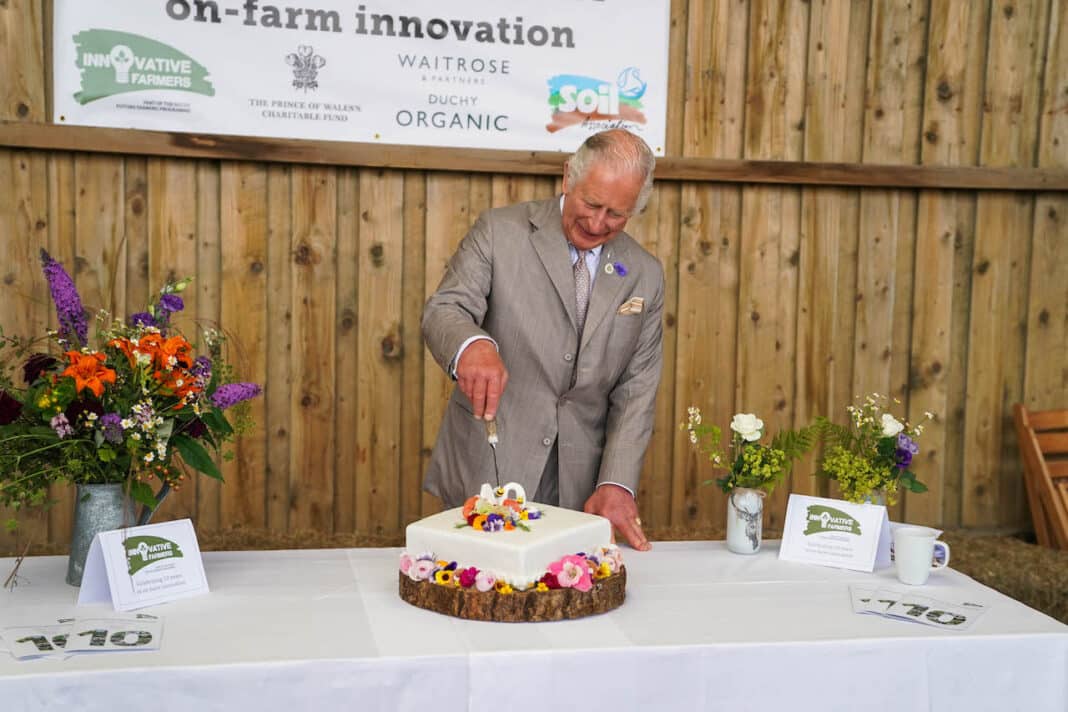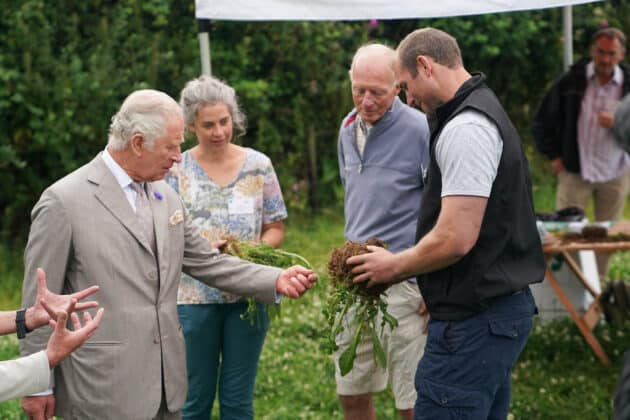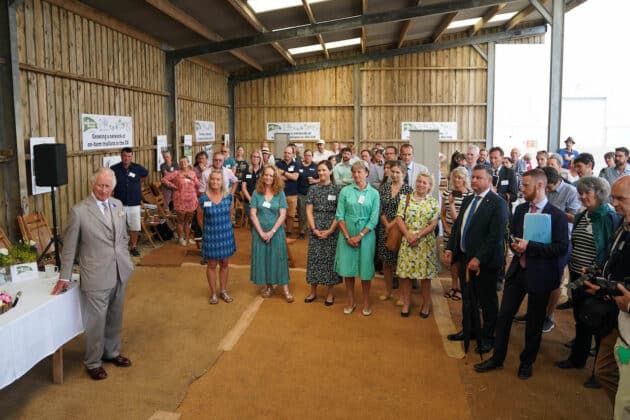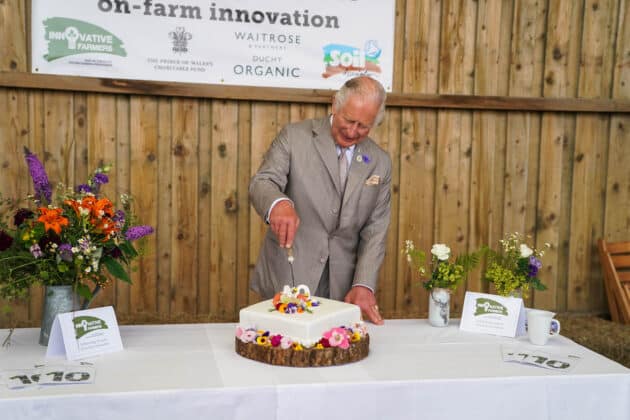Prince Charles joined a group of 150 others at an Innovative Farmers event at Trefranck Farm in Cornwall on 19 July to celebrate a ‘remarkable’ ten years of farmer-led research.
In his capacity as the Duke of Cornwall, the heir met influential farming organizations such as the Organic Research Centre; heard insights on nature-based farming solutions; and watched demonstrations by farmers and scientists who showcased findings from field labs across the country which are pioneering sustainable practices – including agroforestry principles and the use of satellite data to manage grasslands.
The event marked the tenth anniversary for Innovative Farmers, which as an organization has connected approximately 12,000 farmers and placed them ‘in the driving seat of agricultural research’ through more than 120 field labs.
Addressing attendees, the Duke commented that he was ‘very proud’ to be supporting Innovative Farmers, and that the event provided a ‘wonderful opportunity’ to observe the farming community doing ‘remarkable things all over the country’.
I’ve always felt that nature herself has so many of the answers and that if we read the book of nature carefully enough, we discover that she’s created this astonishing, miraculous really, waste-free circularity
“It’s been fascinating to see the results of these field labs and I’ve learned quite a lot, and I’m particularly interested, I must say, in living mulches, which is the next interesting and very critical area I think which I shall be particularly fascinated to see, and in agroforestry and silvopastoral possibilities.
“I’ve always felt that nature herself has so many of the answers and that if we read the book of nature carefully enough, we discover that she’s created this astonishing, miraculous really, waste-free circularity. And that’s what I hope we can all build on, because technology can’t provide all the answers. The combination of the two – the precision technology and so on, and these extraordinary lessons we’ve learnt from nature – can be hugely beneficial and very powerful.”
James Alexander, field lab triallist, comments on the Duke’s interest in the topic of living mulch: “His Royal Highness was really interested in the living mulch trial and he said he likes how if we do something, then he can look at the results and learn from where we’ve gone wrong. And that’s what Innovative Farmers is all about – learning from each other. We all do trials year after year, whether it’s by accident or intentional, but never with quite the support that Innovative Farmers gives you. It’s great that farmers can do research they want [to] on their own farms with the knowledge of getting actual scientific results with the help of the partners.”
Innovative Farmers … got farmer-led research on the map
Also in attendance was Helen Browning, Soil Association CEO, who called the endeavours of Innovative Farmers an ‘extraordinary achievement’ and told the group: “More than anything else, the thing that I celebrate about Innovative Farmers is that it has got farmer-led research on the map. The success that you see when farmers come together to solve their challenges – together with a little bit of support and some rigour from the researchers – and you get rapid results that are taken up really fast. The hundreds and thousands of farmers and research institutes who have come together to make this programme such a success have shown us that when we work together, we can produce our food and farming in ways that are brilliant for profitability, for climate, for nature and ultimately for human health.”
According to results shared during the event, the last decade has shown that farmer-led research can lead to the improved health of thousands of animals, it can eliminate tonnes of harmful chemicals and – crucially for the farming industry – save millions of pounds.














